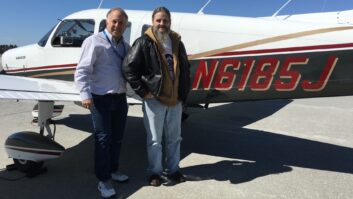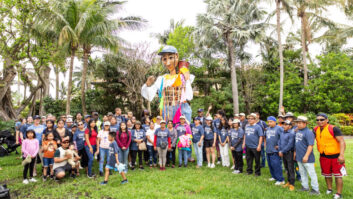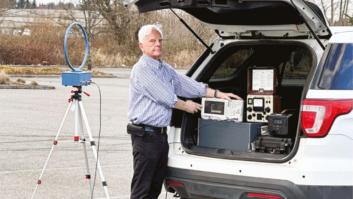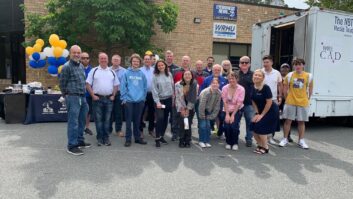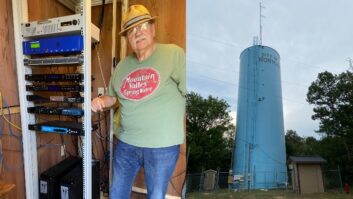The author is associate professor and chair of the TV/Film Department of DeSales University at Center Valley, Pa.
As the faculty manager of WDSR Campus Radio, DeSales University’s online and on-campus Part 15 radio station, my primary tasks are populating the station with students who handle the on-air functions, ensuring the equipment is functioning and up to date, and monitoring the internet feed as well as the FM broadcast.
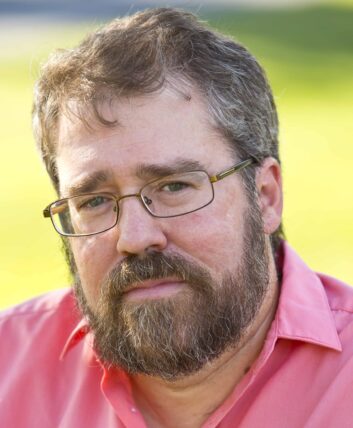
Jarret Brown, our part-time engineer and adjunct professor, teaches our students the concepts of radio in his TV230 class and troubleshoots any problems that may arise.
My goal over the last 20 years has been to find those students interested in radio (very easy), training them to operate the equipment in our station (not too difficult), have them willing to spend a block of time as on-air talent (a little more difficult), and replacing the veteran talent once they graduate (very difficult).
Do college students still listen to radio? They have many options, including SiriusXM, AM, FM and internet. College students watch videos on their phones, but do they still listen to music, sports or the news in just an aural format? With CDs no longer being the trend, vinyl and MP3s seem to be the formats of choice.
My question still stands: How do we get students excited about listening to radio — on their phones, computer, or in the car? Does anyone still have a desire to work in radio?
Once that question is answered, how do we get our leaders of tomorrow interested in becoming radio broadcast engineers?
I reached out to Jarret and asked how he believes we can get students excited about listening to or possibly working in radio.
“It’s important that we expose young people to radio’s versatility and uniqueness,” he told me.
“Radio gives listeners and industry professionals things they can’t get anywhere else. Even in this era of podcasts, social media and streaming video, radio has an immediacy that allows for discovery for listeners, and creativity from presenters, in a platform accessible to everyone. That combination simply cannot be matched by any other current means of communication.
“When young people recognize this, they become more receptive to the idea of listening to radio and perhaps even exploring a career in the field.”
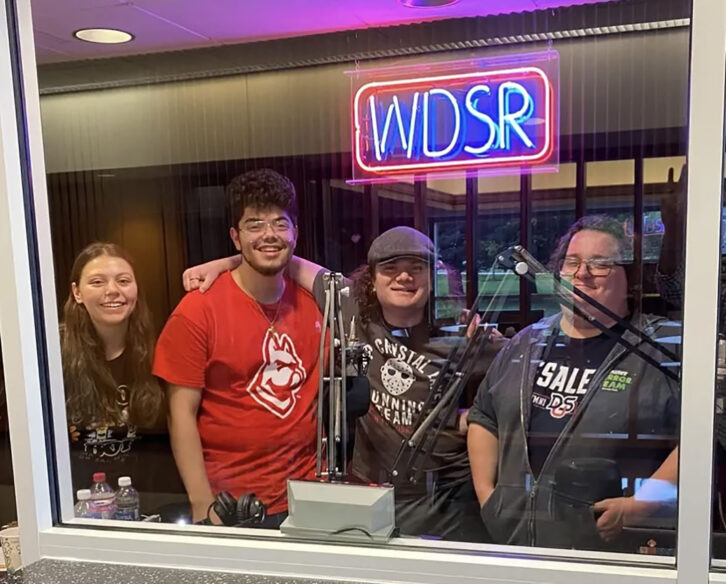
William Borusiewicz, our student station manager and 2023 DeSales theater graduate, had this to say when I asked the same question:
“Younger people are more interested in what radio provides than they think. It provides a way to express your voice and who you are to the public at large through the comfort of a studio and allows for listeners to connect on what can feel like a personal level,” he said.
“These are the exact things that social media like Instagram and Tiktok are built on. The difference is that radio has a structure and form that can be built on to fit a creator’s or broadcaster’s voice.”
I asked William if he thought we could get students interested in becoming radio broadcast engineers.
“I think that they can be. I think there is still a feeling of prestige when broadcasting on air,” he replied.
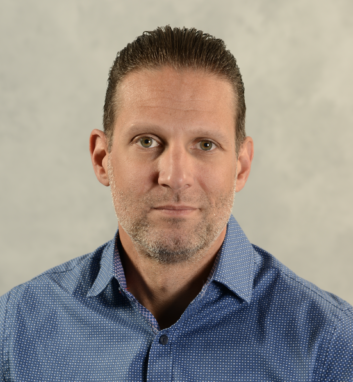
“When students broadcast here, you can see them understand the weight and for some, the rush, of putting themselves out there. I think it is very much about showing younger people that the format is alive, well, and willing to accept their unique and interesting perspectives more than any other entertainment industry.
“On-air is still the glamourous job. Engineering is behind the scenes. Each student who uses our station acts as an engineer too. A few prefer the behind-the-scenes aspects and don’t want to be on the air. This number of students is much smaller, but there are still a few who would rather work on the technical aspects and be an engineer.”
Jarret Brown thinks that not enough young people are even aware of the radio engineering profession.
“When we do take the time to explain it to students, we can easily find ourselves barking up the wrong tree trying to promote engineering to aspiring on-air talent or radio producers. These are not necessarily the most likely folks to be interested,” he said.
“The nature of modern engineering relies heavily on a combination of computer/IT and technical skills, and I find more interest among computer science majors rather than those majoring in TV, film or journalism. I think we should spend more time making a case for engineering by reaching out to those passionate about computer technology.”
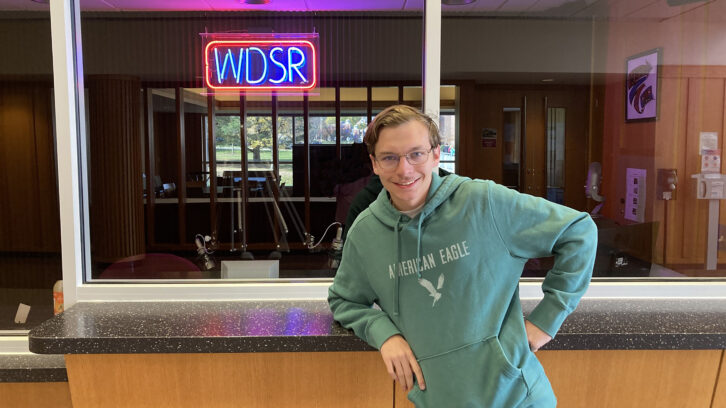
At WDSR, Jarret continued, he tries to emphasize to students the many opportunities that college radio offers.
“The freedom to express themselves in a thoughtful way to an audience of their peers. The spontaneity and creativity associated with a truly live platform and the opportunity to learn the preparation/presentation skills needed to do a radio show. Skills that are useful to all students going forward regardless of their career choice.
“Combined with the sense of camaraderie that develops among the students over time, all help make for a successful college radio station.”
So what makes a college radio station work? I believe it’s the passion students have and their willingness to share that passion with others. Putting our radio station in a prominent spot on the campus attracts the attention of other students.
“How can I be a part of that?” The more we can get students to ask that question, the faster our station will grow — and yours can too.

